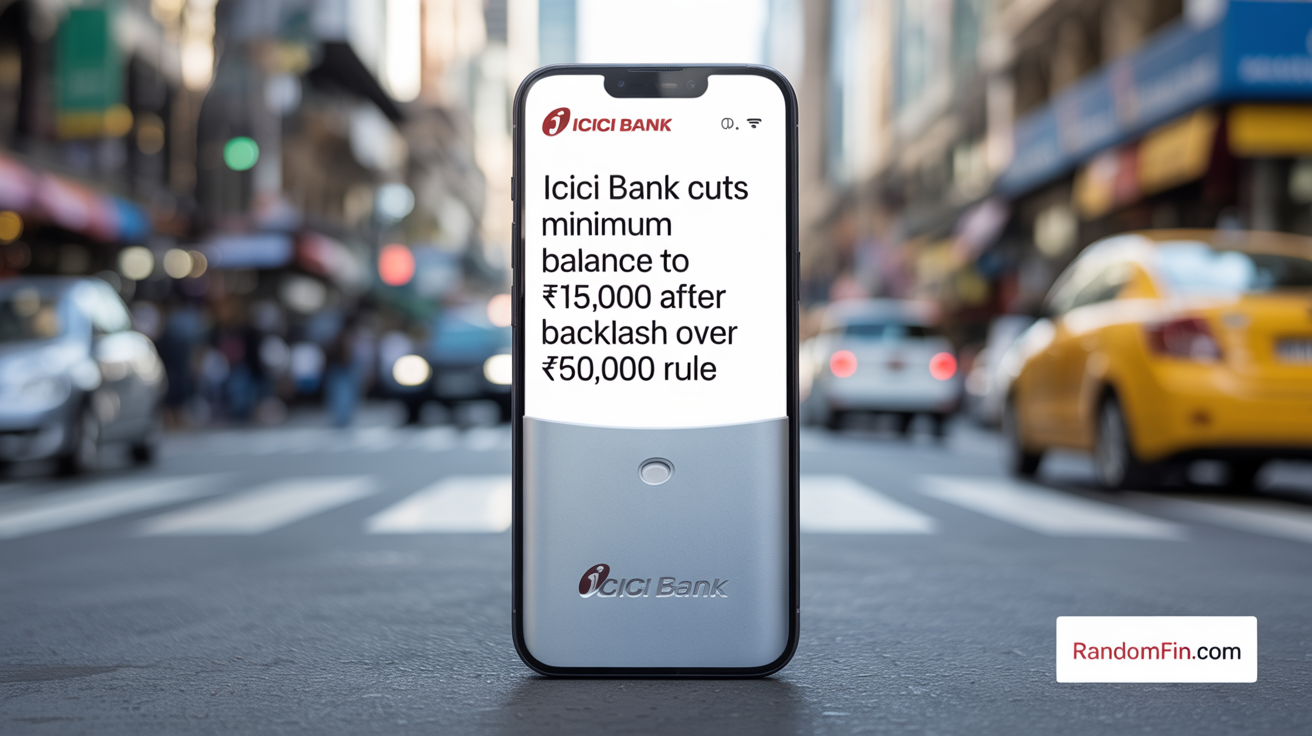Are you looking for the Best Cryptocurrency Exchanges? If Yes, You are at the right place.
Cryptocurrencies have revolutionized the financial world by offering a decentralized form of currency that operates independently of traditional banking systems. As the popularity of cryptocurrencies grows, so does the need for reliable platforms to buy, sell, and trade them. This is where cryptocurrency exchanges come in.
Choosing the right cryptocurrency exchange is one of the most important steps for anyone looking to buy, sell, or trade crypto. Whether you’re a beginner or an experienced trader, the platform you use should be secure, easy to use, and offer a wide range of coins and features. As blockchain technology continues to revolutionize the way money moves, many companies are now using blockchain for cross-border payments. You can explore some of the top options in our article on Companies that Use Blockchain Payments to Send Your Money. To help you make the best choice for trading, here’s a list of the Top 10 Best Cryptocurrency Exchanges in 2025.
What is Cryptocurrency?
Cryptocurrency is a digital or virtual form of currency that uses cryptography for security. Unlike traditional currencies issued by governments (fiat currencies), cryptocurrencies operate on decentralized networks based on blockchain technology. This decentralized nature makes cryptocurrencies resistant to central control or manipulation.
Bitcoin, introduced in 2009 by an anonymous entity known as Satoshi Nakamoto, was the first cryptocurrency and remains the most well-known and valuable. Since then, thousands of alternative cryptocurrencies (altcoins) have been created, each with its unique features and use cases. Along with this evolution, the need for secure and efficient ways to spend and accept crypto has grown. That’s where crypto payment gateways come in these platforms allow businesses to accept digital currency safely. To explore your options, check out our article on the Best Crypto Payment Gateways for Secure Transactions.
What are Cryptocurrency Exchanges?
Cryptocurrency exchanges are online platforms where users can buy, sell, and trade cryptocurrencies. These exchanges operate similarly to traditional stock exchanges but deal exclusively with digital currencies.
Users can trade one cryptocurrency for another or exchange cryptocurrencies for fiat money (such as USD, EUR, GBP, etc.). Cryptocurrency exchanges serve as intermediaries, matching buyers and sellers while charging fees for their services. In the United States, where digital payments are rapidly evolving, many businesses are also turning to crypto payment gateways to accept digital currencies securely. Take a look at the Best Crypto Payment Gateways in the USA to see which platforms are leading the way.
How Do Cryptocurrency Exchanges Work?
Cryptocurrency exchanges function through the following steps:
- Registration: Users create an account on the exchange platform.
- Verification: Most exchanges require users to verify their identity to comply with regulatory requirements.
- Deposits: Users deposit funds into their exchange account. This can be done through bank transfers, credit/debit cards, or by depositing cryptocurrency directly.
- Trading: Users can place buy or sell orders for various cryptocurrencies. The exchange matches these orders with corresponding sellers or buyers.
- Withdrawals: Users can withdraw their funds, either in cryptocurrency or fiat, to their personal wallets or bank accounts.
Types of Cryptocurrency Exchanges
There are several types of cryptocurrency exchanges, each catering to different needs and preferences:
- Centralized Exchanges (CEX): These are the most common type, operated by companies that maintain control over the platform. They offer high liquidity, user-friendly interfaces, and a wide range of trading pairs. Examples include Coinbase and Binance.
- Decentralized Exchanges (DEX): These operate without a central authority, allowing users to trade directly with each other. DEXs offer greater privacy and security but often have lower liquidity and a steeper learning curve. Examples include Uniswap and SushiSwap.
- Hybrid Exchanges: These combine features of both centralized and decentralized exchanges to provide the best of both worlds. They offer enhanced security and user control while maintaining some level of central oversight. Examples include Binance DEX and Nash.
- Peer-to-Peer (P2P) Exchanges: These platforms connect buyers and sellers directly, allowing them to negotiate terms and trade without an intermediary. Examples include LocalBitcoins and Paxful.
- Brokerages: These platforms act as intermediaries that buy and sell cryptocurrencies at set prices. They are user-friendly but often come with higher fees. Examples include eToro and Robinhood.
Top 10 Best Cryptocurrency Exchanges in 2025

Here are the Top 10 Best Cryptocurrency Exchanges…
1. Binance
Binance is one of the most dominant and widely recognized cryptocurrency exchanges in the world. Launched in 2017 by Changpeng Zhao (often known as “CZ”), Binance quickly became the go-to platform for millions of traders due to its fast growth, innovation, and commitment to offering a seamless trading experience. With support for hundreds of cryptocurrencies, it has become a one-stop shop for anyone looking to trade, invest, or explore the world of digital assets.
The platform caters to both newcomers and seasoned professionals by offering beginner-friendly interfaces as well as advanced trading dashboards. Beyond basic trading, Binance also offers features like futures and margin trading, staking, a launchpad for new tokens, and a robust NFT marketplace. It even has its own blockchain ecosystem, powered by Binance Smart Chain (BSC), which supports decentralized applications and DeFi protocols.
Key Features:
- Wide Range of Cryptocurrencies: Binance supports hundreds of cryptocurrencies, providing traders with diverse options.
- Low Trading Fees: Binance offers competitive trading fees, starting at 0.1% per trade, which can be further reduced by using Binance Coin (BNB).
- Advanced Trading Tools: The platform provides advanced charting tools, various order types, and futures trading.
- Security: Binance employs strong security measures, including two-factor authentication (2FA) and cold storage for funds.
- User Experience: The platform caters to both beginners and advanced traders with its basic and advanced interfaces.
Pros:
- Extensive range of cryptocurrencies.
- Low fees.
- High liquidity.
- Advanced trading features.
Cons:
- Regulatory scrutiny in some regions.
- Can be overwhelming for beginners due to its extensive features.
2. Coinbase
Founded in 2012 by Brian Armstrong and Fred Ehrsam, Coinbase is one of the most well-known cryptocurrency exchanges, especially in the United States. It is considered the top choice for beginners thanks to its clean user interface, educational resources, and easy fiat-to-crypto transactions. Coinbase is also a publicly listed company, which adds a level of transparency and trust for users.
Coinbase focuses on simplicity and regulatory compliance, making it ideal for users who want to invest in crypto without diving into complex trading tools. The platform also offers Coinbase Pro, a separate branch with advanced tools and lower fees for more experienced traders.
Key Features:
- User-Friendly Interface: Coinbase is known for its intuitive design, making it easy for newcomers to navigate.
- Security: High emphasis on security with 98% of funds stored offline, insurance against breaches, and two-factor authentication.
- Regulatory Compliance: Coinbase is fully regulated and compliant with U.S. laws.
- Coinbase Pro: Offers advanced trading features for experienced users, with lower fees than the standard Coinbase platform.
Pros:
- Easy to use.
- Strong security measures.
- Fully regulated.
- Insurance for digital assets.
Cons:
- Higher fees compared to other exchanges.
- Limited range of supported cryptocurrencies compared to Binance.
3. Kraken
Kraken is one of the oldest and most respected cryptocurrency exchanges in the world. Founded in 2011 by Jesse Powell, Kraken is known for its focus on security, transparency, and advanced trading tools. It supports a wide range of cryptocurrencies and trading options including futures, staking, and margin trading.
Kraken is often the preferred platform for traders who need more than just the basics. It has built a strong reputation among institutions and professionals, while also offering features that cater to retail investors.
Key Features:
- Wide Range of Cryptocurrencies: Supports over 50 cryptocurrencies.
- Advanced Trading Tools: Offers margin trading, futures trading, and various order types.
- Security: Emphasizes security with features like two-factor authentication and cold storage.
- Staking: Provides staking services for several cryptocurrencies.
Pros:
- Wide range of supported assets.
- Advanced trading features.
- Strong security measures.
- Good liquidity.
Cons:
- Can be complex for beginners.
- Slower account verification process.
4. Bitfinex
Established in 2012, Bitfinex is a professional-grade exchange well known for its high liquidity and deep order books. It caters primarily to experienced traders and institutions, offering advanced features like margin trading, lending, and customizable trading interfaces.
Bitfinex is suitable for users who trade in large volumes or use complex strategies. Despite some past security issues, the platform has significantly improved its safety measures over time.
Key Features:
- High Liquidity: Suitable for large-volume traders.
- Advanced Trading Features: Offers margin trading, lending, and a wide range of order types.
- Security: Implements strong security measures, including 2FA and cold storage.
- Customizable Interface: Allows traders to customize their trading environment.
Pros:
- High liquidity.
- Advanced trading options.
- Customizable trading interface.
- Wide range of supported cryptocurrencies.
Cons:
- Not very beginner-friendly.
- Past security breaches (though improvements have been made).
5. Bittrex
Bittrex was founded in 2014 by cybersecurity engineers and has earned a reputation for being a secure and reliable platform. It supports a wide range of cryptocurrencies and offers a straightforward trading experience, making it suitable for users who want access to lesser-known tokens.
While it may not offer as many advanced features as other platforms, Bittrex remains a good option for users focused on variety and security.
Key Features:
- Wide Variety of Cryptocurrencies: Supports over 200 cryptocurrencies.
- Security: Strong emphasis on security with features like two-factor authentication and cold storage.
- User Experience: Provides a clean and user-friendly interface.
Pros:
- Large selection of cryptocurrencies.
- Strong security features.
- User-friendly interface.
- Fast transaction processing.
Cons:
- Customer support could be improved.
- Higher trading fees compared to some other exchanges.
6. Gemini
Gemini was founded in 2014 by Cameron and Tyler Winklevoss. It is a fully regulated U.S.-based cryptocurrency exchange that emphasizes security and compliance. Gemini is best for users who want a secure, trusted, and transparent environment for their crypto activities.
Its simple interface appeals to beginners, while its robust security protocols and insurance coverage give users peace of mind. It also offers a professional trading interface for advanced users.
Key Features:
- Security: Implements strong security measures, including 2FA, hardware security keys, and insurance for digital assets.
- Regulatory Compliance: Fully regulated and compliant with U.S. laws.
- User Experience: Offers a user-friendly interface suitable for beginners.
Pros:
- High security standards.
- Regulatory compliance.
- Insurance for assets.
- Easy to use.
Cons:
- Limited range of supported cryptocurrencies.
- Higher fees compared to some competitors.
7. Huobi
Founded in 2013 and recently rebranded to HTX, Huobi is a global exchange with a strong presence in Asia and emerging markets. It supports hundreds of cryptocurrencies and offers various trading options, including derivatives and margin trading.
Huobi is known for its solid security framework and investor protection mechanisms. The exchange is favored by users who want access to a wide selection of coins and advanced tools.
Key Features:
- Wide Range of Cryptocurrencies: Supports over 300 cryptocurrencies.
- Trading Options: Offers spot trading, futures, and margin trading.
- Security: High security with 2FA, cold storage, and an investor protection fund.
- Global Reach: Available in many countries with localized services.
Pros:
- Extensive range of supported cryptocurrencies.
- Strong security measures.
- Advanced trading features.
- Good liquidity.
Cons:
- Complex interface for beginners.
- Regulatory challenges in some regions.
8. OKEx
OKX (formerly OKEx) is a powerful and versatile exchange offering a comprehensive trading platform for both beginners and pros. It provides features like spot trading, derivatives, options, and DeFi integrations. OKX also supports Web3 wallets and has entered the NFT and GameFi space.
It’s a great option for users who want to go beyond simple trading and explore decentralized finance while still benefiting from a centralized platform’s security and liquidity.
Key Features:
- Wide Range of Trading Options: Offers spot trading, futures trading, margin trading, and options trading.
- Cryptocurrency Selection: Supports a wide variety of cryptocurrencies.
- Security: Strong security features, including 2FA and cold storage.
Pros:
- Wide range of trading options.
- Extensive cryptocurrency selection.
- Strong security.
- High liquidity.
Cons:
- Complex for beginners.
- Regulatory issues in some regions.
9. KuCoin
KuCoin is often referred to as the “People’s Exchange” thanks to its wide variety of supported coins, competitive fees, and user-friendly platform. Launched in 2017, KuCoin appeals to users looking to trade lesser-known tokens and explore features like trading bots, staking, and lending.
KuCoin is a solid choice for both casual and active traders who want access to an extensive market with low fees and added earning opportunities.
Key Features:
- User-Friendly Interface: Easy to navigate, making it suitable for beginners.
- Cryptocurrency Selection: Supports a large number of cryptocurrencies.
- Security: Implements robust security measures, including 2FA and cold storage.
Pros:
- Easy to use.
- Wide range of cryptocurrencies.
- Strong security features.
- Competitive fees.
Cons:
- Lower liquidity compared to larger exchanges.
- Customer support could be improved.
10. eToro
eToro is a unique platform that blends cryptocurrency trading with social investing. Founded in 2007, eToro allows users to trade a variety of assets including crypto, stocks, and commodities, all from one account. Its CopyTrader feature lets users follow and replicate the trades of top-performing investors.
eToro is ideal for beginners who want a more social and educational trading experience and also want to diversify their portfolio beyond crypto.
Key Features:
- Social Trading: Allows users to follow and copy trades of experienced traders.
- User-Friendly Interface: Intuitive design suitable for beginners.
- Security: Strong security measures and regulatory compliance.
- Cryptocurrency and Beyond: Besides cryptocurrencies, eToro supports trading in stocks, commodities, and more.
Pros:
- Social trading features.
- User-friendly interface.
- Wide range of supported assets.
- Strong security and regulatory compliance.
Cons:
- Higher fees compared to some dedicated crypto exchanges.
- Limited range of cryptocurrencies compared to some competitors.
How to Choose the Best Cryptocurrency Exchange?
Choosing the right cryptocurrency exchange depends on several factors:
- Security: Ensure the exchange has strong security measures, including two-factor authentication (2FA), cold storage for funds, and a history of security practices.
- Fees: Compare trading fees, deposit and withdrawal fees, and any other charges. Look for exchanges with transparent fee structures.
- Liquidity: Higher liquidity ensures you can buy and sell cryptocurrencies at stable prices without significant delays.
- User Experience: A user-friendly interface and responsive customer support can enhance your trading experience.
- Range of Cryptocurrencies: Choose an exchange that supports the cryptocurrencies you are interested in trading.
- Regulatory Compliance: Ensure the exchange complies with local regulations and has a strong reputation in the industry.
Benefits of Using Cryptocurrency Exchanges
- Accessibility: Cryptocurrency exchanges provide a convenient way to access the digital currency market.
- Liquidity: High liquidity on exchanges allows for quick and efficient trading.
- Security: Reputable exchanges offer robust security measures to protect user funds.
- Variety: Exchanges support a wide range of cryptocurrencies, allowing users to diversify their portfolios.
- Tools and Features: Many exchanges offer advanced trading tools, educational resources, and customer support.
FAQs
Are Cryptocurrency Exchanges Safe?
Reputable exchanges implement robust security measures, but it’s essential to conduct your research and choose exchanges with a good track record of security.
Can I Trade Fiat Currency for Cryptocurrency on These Exchanges?
Yes, many exchanges allow you to trade fiat currency for cryptocurrency and vice versa.
What is a Wallet, and Do I Need One?
A cryptocurrency wallet is a digital tool that allows you to store, send, and receive cryptocurrencies. While some exchanges offer built-in wallets, it’s recommended to use a personal wallet for added security.
Are There Fees for Trading on Cryptocurrency Exchanges?
Yes, most exchanges charge trading fees, as well as deposit and withdrawal fees. These fees vary between exchanges.
Can I Use Multiple Cryptocurrency Exchanges?
Yes, many traders use multiple exchanges to take advantage of different features, trading pairs, and fee structures.
Conclusion
Cryptocurrency exchanges are pivotal in the digital currency ecosystem, providing a platform for buying, selling, and trading cryptocurrencies. Understanding the different types of exchanges and what they offer can help you make informed decisions. Whether you are a beginner or an experienced trader, choosing the right exchange is crucial for a safe and efficient trading experience. By considering factors like security, fees, liquidity, and user experience, you can find an exchange that meets your needs and helps you navigate the exciting world of cryptocurrencies.










Leave a Reply